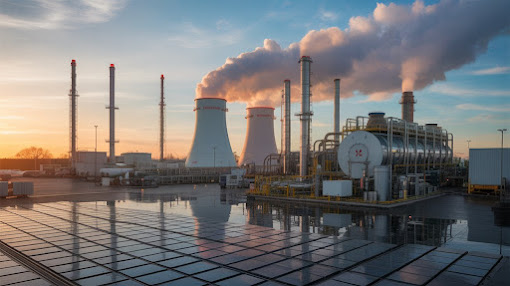Mapping knowledge: Topic analysis of science locates researchers in disciplinary landscape
Mapping Knowledge: How Topic Analysis in Science Helps Locate Researchers in the Disciplinary Landscape 🌍🔬
In today’s rapidly evolving scientific world, researchers constantly navigate a vast sea of knowledge. 🧠💡 But how do we map this vast intellectual terrain? The answer lies in topic analysis—a powerful method that helps locate researchers within the complex disciplinary landscape of science. 📍📚
🌟 What is Topic Analysis?
Topic analysis is a data-driven approach used to categorize and map research based on themes, keywords, and citations. 🖥️🔎 By analyzing research papers, patents, and other academic sources, topic analysis helps identify:
✅ Emerging trends in science 🌱
✅ The relationship between different disciplines 🔗
✅ Key researchers and their contributions 👩🔬👨🔬
✅ Gaps in knowledge that need exploration ❓
🔍 Why Does Mapping Knowledge Matter?
Science is increasingly interdisciplinary. 🚀 A single research problem might involve physics, biology, and AI all at once! Topic analysis visualizes this interconnectedness, making it easier for researchers to:
📌 Find relevant collaborators 🤝
📌 Discover new research frontiers 🌐
📌 Avoid duplication of efforts ❌
📌 Gain insights into their position within the broader academic network 🗺️
🛠️ How Is It Done?
1️⃣ Text Mining & NLP – AI scans research articles for recurring topics. 📄🤖
2️⃣ Citation Network Analysis – Who cites whom? This reveals academic influences. 🔗📖
3️⃣ Co-Authorship Mapping – Tracking collaborations across disciplines. 🤝📚
4️⃣ Visualization Tools – Heatmaps, clusters, and graphs provide an intuitive look at knowledge distribution. 📊🖼️
🚀 Real-World Applications
🔬 Biomedicine: Helps identify gaps in disease research and potential treatments. 🏥💊
🛰️ Space Exploration: Maps emerging trends in astrophysics and engineering. 🌌🚀
🌍 Climate Science: Tracks research on sustainability and environmental impact. 🌿🌎
🔮 The Future of Knowledge Mapping
With AI and big data expanding, the future of topic analysis looks even more promising. 🌟 Imagine real-time updates on scientific trends, predictive modeling of breakthrough discoveries, and automated research assistants guiding scientists! 🤯📡
📢 Final Thoughts: Whether you're a researcher, student, or science enthusiast, understanding the disciplinary landscape through topic analysis can revolutionize the way we approach knowledge. 🚀 So, let’s embrace the power of data and mapping to decode the future of science! 🔍✨
International Phenomenological Research AwardsWebsite Link: https://phenomenologicalresearch.com/
Nomination Link: https://phenomenologicalresearch.com/award-nomination/?ecategory=Awards&rcategory=Awardee
Contact Us For Enquiry: contact@phenomenologicalresearch.com
#Phenomenology#ResearchAwards#InternationalAwards#AcademicRecognition#QualitativeResearch#PhenomenologicalStudies#ScholarlyAchievement#ResearchExcellence#HumanScienceResearch#professor #academic #sciencefather#VoiceTherapy #MentalEffort #PatientPerception #VocalRehabilitation #SpeechTherapy #CognitiveLoad #PatientExperience #TherapeuticOutcomes #VoiceHealth #HealthcarePsychology
You tube: https://www.youtube.com/channel/UCga5JVq6VElDLksyLzNqybg
Twitter: https://x.com/compose/post
Instagram: https://www.instagram.com/phenomenoresearch/?hl=en
Pinterest: https://in.pinterest.com/phenomenoresearch/
Blogger: https://phenomenological21.blogspot.com/



Comments
Post a Comment